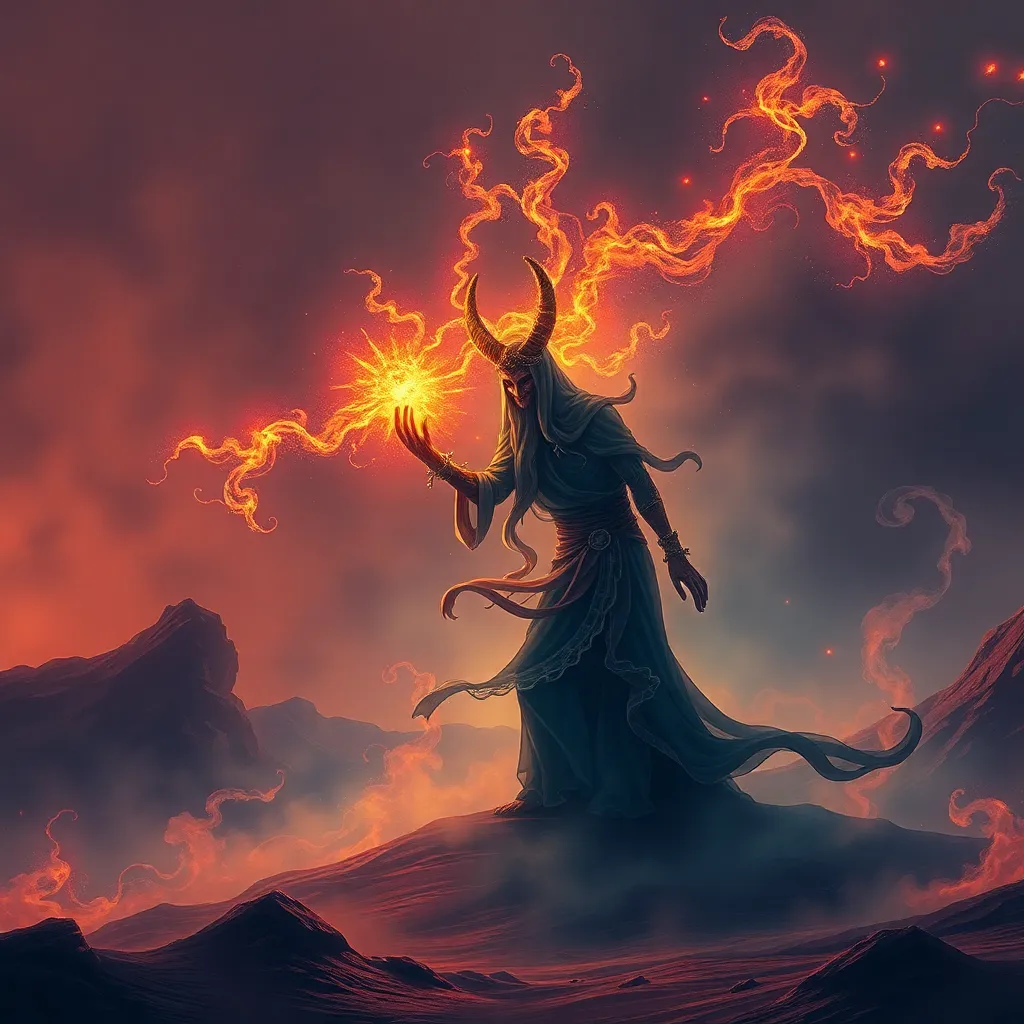The Jinn and the Prophet: Ifrit’s Role in Islamic Prophetic Narratives
I. Introduction
The concept of Jinn in Islamic theology is both complex and multifaceted. Jinn are supernatural beings created from smokeless fire, as mentioned in the Quran. They possess free will similar to humans and can choose to do good or evil. Among the various types of Jinn, the Ifrit holds a significant place in Islamic narratives, representing a powerful and often malevolent force.
This article aims to explore the role of Ifrit in Islamic prophetic narratives, examining its characteristics, theological implications, and relevance in both historical and contemporary contexts.
II. Understanding Jinn in Islam
A. Definition and classification of Jinn
In Islamic theology, Jinn are classified into various categories based on their nature and behavior. The primary classifications include:
- Believers: Those who submit to Allah and follow Islamic teachings.
- Sinners: Jinn who reject faith and indulge in malevolent actions.
- Ifrit: A powerful type of Jinn often associated with evil and rebellion.
B. The nature of Jinn: Free will and moral responsibility
Jinn, like humans, possess free will, allowing them to make choices that have moral implications. This aspect of their existence underscores the belief that they, too, are accountable for their actions in the eyes of Allah.
C. The role of Jinn in Islamic cosmology
Jinn occupy a unique position in Islamic cosmology, bridging the gap between the physical and spiritual realms. They interact with humans and influence events, sometimes acting as protectors, but often as tempters or adversaries.
III. The Ifrit: Characteristics and Attributes
A. Definition and origins of Ifrit
Ifrits are a specific class of Jinn known for their immense strength and fiery nature. The term “Ifrit” is derived from Arabic, meaning “to be powerful” or “to be mighty.” They are often depicted as rebellious and disobedient beings.
B. Distinction between Ifrit and other Jinn types
Unlike other Jinn, Ifrits are characterized by their physical might and cunning intelligence. While many Jinn can be benevolent, Ifrits are primarily considered malevolent, often associated with darkness and chaos.
C. Common attributes and powers associated with Ifrit
Ifrits are attributed with various abilities, including:
- Shape-shifting into different forms.
- Control over fire and heat.
- Possessing great physical strength.
- Ability to influence human thoughts and actions.
IV. Ifrit in Islamic Literature
A. Historical references in the Quran
The Quran mentions Ifrit in various contexts, notably in the story of Prophet Solomon, who was able to command Ifrits to do his bidding, demonstrating their power and the potential for control over malevolent forces.
B. Ifrit in Hadith and prophetic traditions
Hadith literature also references Ifrit, often in the context of stories that highlight the struggle between good and evil. These narratives serve to remind believers of the ever-present threat of temptation and the importance of faith.
C. Role of Ifrit in pre-Islamic and contemporary narratives
Ifrits have been part of folklore and mythology long before the advent of Islam. They appear in various tales, both traditional and modern, illustrating the continuity of their symbolic significance in human culture.
V. Ifrit and the Prophetic Stories
A. Key prophetic encounters with Ifrit
Prophets, particularly Solomon and Muhammad, encountered Ifrits in their quests for truth and righteousness. These encounters often served as tests of faith and highlighted the prophets’ roles as leaders against malevolent forces.
B. Analysis of stories involving Ifrit and their moral lessons
Many stories involving Ifrit carry profound moral lessons, such as the importance of faith, the dangers of temptation, and the necessity of resisting evil. These narratives encourage believers to remain steadfast in their faith amidst trials.
C. The symbolic significance of Ifrit in prophetic narratives
Ifrits symbolize the internal and external struggles faced by individuals in their spiritual journeys. They represent the darker aspects of human nature and the challenges posed by malevolent forces.
VI. Theological Implications of Ifrit’s Role
A. Ifrit as a representation of evil and temptation
Ifrits epitomize the concept of evil in Islamic thought. They are often seen as tempters, leading humans away from righteousness and towards sin.
B. The concept of resistance against malevolent forces
The narratives surrounding Ifrit encourage believers to resist temptation and seek refuge in Allah. This resistance is seen as a fundamental aspect of faith and moral integrity.
C. The balance of good and evil in prophetic teachings
The presence of Ifrit in prophetic stories illustrates the balance of good and evil in Islamic theology. It emphasizes that while evil exists, so does the possibility for redemption and guidance through faith.
VII. Ifrit in Popular Culture and Modern Interpretations
A. Representation of Ifrit in literature and media
Ifrits have transcended religious texts, appearing in various forms of literature and popular media. Their portrayal often blends traditional attributes with contemporary interpretations, making them accessible to wider audiences.
B. Contemporary views on Ifrit and Jinn in society
In modern society, views on Ifrit and Jinn vary widely. Some see them as remnants of ancient beliefs, while others embrace them as part of a spiritual framework that offers insight into human nature.
C. The impact of cultural narratives on traditional beliefs
Cultural narratives surrounding Ifrit have influenced traditional beliefs, often reshaping perceptions and leading to new understandings of Jinn in the context of contemporary spirituality.
VIII. Conclusion
Ifrit holds a significant place in Islamic prophetic narratives, symbolizing the struggle against evil and the importance of moral integrity. The stories involving Ifrit invite believers to reflect on their own spiritual journeys and the constant battle between good and evil.
In a modern context, Ifrit continues to resonate, reflecting ongoing concerns about morality, temptation, and the human condition. The interplay between Jinn and human morality remains a compelling aspect of Islamic spirituality, inviting continued exploration and understanding.



